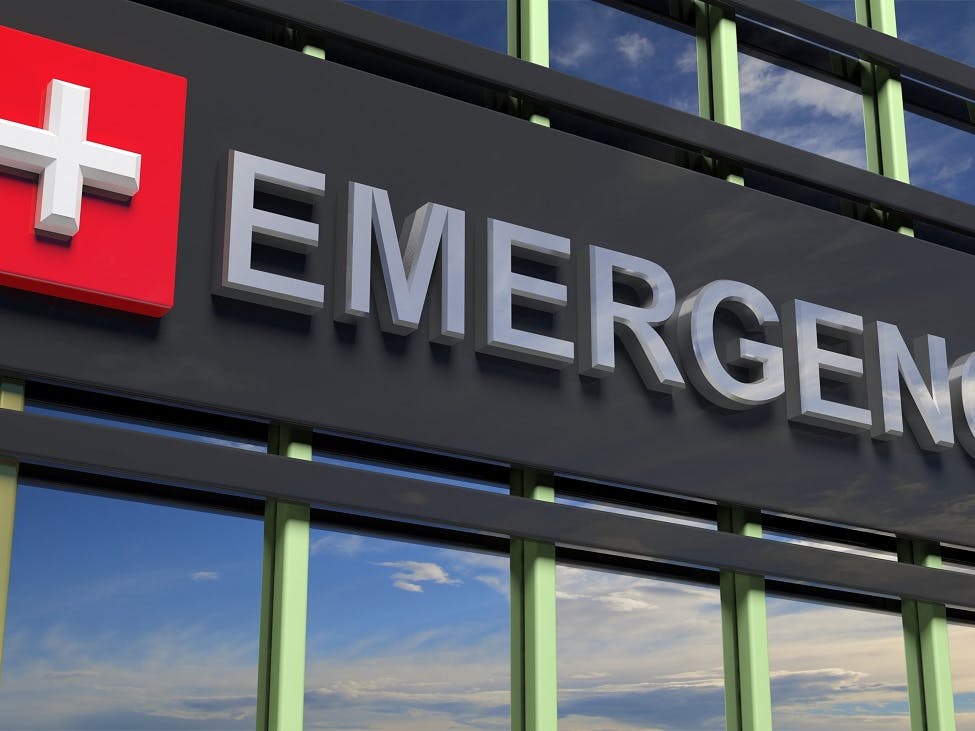
Emergency room care is a federally mandated Medicaid benefit.
Emergency room visits can be the most critical type of care. In the event of an emergency, you often don't have time to worry about your insurance and coverage, just that you or a loved one get the help that's needed. Fortunately, Medicaid does cover visits to the ER.
When will Medicaid cover ER visits?
Medicaid will always cover emergency room visits, but the way visits are covered varies depending on your state.
There are two sets of Medicaid benefits: mandatory benefits that the federal government requires, and optional benefits offered by the state. Emergency room care is a mandatory benefit, so no matter which state you live in you are covered. However, the type of coverage differs based on where you live.
Some states charge nothing for ER care, while others may charge a flat co-pay or percentage of the Medicaid reimbursement costs. There are even states that charge different prices based on whether your visit is deemed an emergency or not. It is always best to check with your state Medicaid program to see how, exactly, your care is covered.
What happens if I go to an out-of-state ER?
Medical emergencies are not limited to your home state, so it's understandable that many people worry about emergency room care being covered while they travel.
There are four scenarios in which Medicaid is required to provide ER coverage when visiting another state:
● Traveling back to the home state would endanger the beneficiary's health
● It is commonplace for beneficiaries to receive medical care in a bordering state
● The required resources and services are more readily available than in the home state
● During a medical emergency
If any of the above apply to your emergency room visit, Medicaid will usually cover your care the same as it would in your home state. But remember that some states have more flexibility in how they charge for out-of-state care. Pre-approved care at an out-of-state facility (properly authorized by Medicaid and a physician) may also be covered.
How do I know which type of health care facility to go to?
Sometimes, it can be confusing trying to figure out where you should go to receive medical care. You don't want to send yourself to the emergency room for a minor issue, but you also don't want to put off care for a more concerning and immediate medical problem. Below we go over when you should visit different types of health care facilities.
When to go to the emergency room
As indicated in the name, an emergency room should be used for medical emergencies. This includes, but is not limited to, severe trauma, broken bones, profuse bleeding, vehicular accidents, serious burns, and head injuries.
The purpose of an emergency room is to provide quick care for immediate issues. Care sought in an emergency room typically can only be done in a hospital setting at any time of day or night. Hence, the "emergency" title.
When to go to urgent care
Many people think of urgent care as synonymous with emergency rooms, which makes sense, as medical emergencies require urgent care. However, urgent care should not be treated the same as an ER for a few reasons.
First, many are not open 24/7 the same as emergency rooms. Heading for an urgent care center during an emergency, only to find they are closed, will prolong the amount of time it takes to receive potentially life-saving care.
Second, urgent care facilities do not have the same resources or staff as an ER to handle more complex medical issues.
An urgent care should be your choice when you need same-day care and cannot get in to see your primary care physician. Sprains/strains, minor cuts, mild flu-like symptoms, and vomiting are all reasonable things to go to urgent care to deal with.
When to schedule an appointment with your primary care doctor
Outside of an emergency, it is always best to consult your primary care physician for medical issues. They know your medical history and are well-equipped to help with non-emergency services and care options. Minor cold symptoms, annual wellness visits, and lab work are all care services you should try to schedule with your primary care doctor. If you can get in in a timely manner, the conditions listed above for urgent care would also be good to see your primary care doctor for.
When to call 911
It is not uncommon for people to be unsure of whether to call 911. Ambulance services can be expensive and you may not be entirely sure if an ambulance ride is warranted. In general, you should never drive yourself anywhere if you have severe chest pain or bleeding, or find your vision blurring or fading.
If you or a loved one has had a heart attack or stroke, calling 911 is always the right decision. Paramedics will get you to an ER as fast as possible and may be able to provide life-saving care on the way. When in doubt, calling 911 is the best choice you can make.
Does Medicare cover ER visits?
Medicare also covers emergency room care through Medicare Part B. You typically have a co-payment for each ER visit and for each hospital service rendered. Once you've met your Part B deductible, you pay 20% of the Medicare-approved amount for services. You do not have to pay this copay if your doctor admits you to the same hospital within three days of your emergency room visit for a related issue. Your visit would be considered part of your inpatient stay at the hospital.



